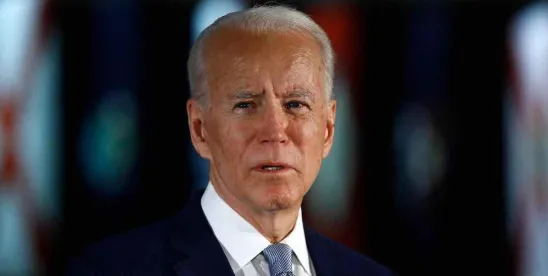President-elect Joe Biden and his team will move into the White House in January 2021. With COVID-19 still a major national issue that he will need to tackle head-on and right away, let’s explore the top ten ways the Biden-Harris administration has indicated it will begin to address the pandemic.
Transition Team and Appointees:
-
Immediately following his win last month, President-elect Biden announced the creation of a coronavirus task force to advise the incoming administration and handle pandemic-related public messaging. It was the first policy priority on his agenda. The task force is led by former Surgeon General Vivek Murthy, former FDA Commissioner David Kessler, and Associate Professor and Associate Dean at Yale University School of Medicine, Dr. Marcella Nunez-Smith.
-
Biden formed a separate transition team dedicated to coordinating intergovernmental agency operations. The group is comprised of over 50 transition officials and covers a wide array of governmental agencies, though it is broken down into three specialties: domestic, foreign policy, and tech strategy delivery.
-
The list of front runners for Health and Human Services Secretary has narrowed to Congresswoman Karen Bass (D-CA-37) and New Mexico Gov. Michelle Lujan-Grisham. Biden may announce his pick for the nomination as soon as the end of this week. HHS North Carolina State Secretary Mandy Cohen is seen as the likely pick for Director of Centers for Medicare and Medicaid Services (CMS).
-
On Thursday, Dec. 3, Biden appointed two former Obama administration officials to head his administration’s pandemic response: Former Economic Advisor Jeff Zients will serve as the COVID-19 coordinator, and Former Surgeon General Vivek Murthy will act as top medical expert and public face of the pandemic response.
-
The incoming administration is now meeting with the Trump administration regarding "Operation Warp Speed" and has called for $25 billion in vaccines to ensure they are cost-free for all Americans. It is unclear whether or not President-elect Biden will continue Trump’s vaccine distribution strategy, but many are pushing for a more nationalized approach or at least more funding for states to distribute vaccines. Currently, it will be left up to states to create and implement their own vaccination plans.
-
Ron Klain, Biden’s Chief of Staff, oversaw the response to the outbreak of Ebola in 2014 during the Obama administration. Klain has been a central figure in the Biden campaign, briefing him weekly and utilizing his experience to form the basis of Biden’s pandemic response pledge.
COVID-Related Policy Agenda:
-
Similar to his predecessors, President-elect Biden plans to freeze Trump administration rules in the pipeline, healthcare or otherwise. This will allow new appointees the opportunity to review pending regulation and Executive Orders and decide what should move forward.
-
As Biden is likely to face a divided Congress that will more than likely put a stop to any progress he hopes to make on his healthcare agenda, the incoming administration plans to lean heavily on the Department of Health and Human Services to achieve its goals. Biden has the Executive Order at his disposal, as well. Biden will look to the White House Office of Information and Regulatory Affairs to ensure any regulation is able to pass judicial review.
-
With the surge of COVID cases across the country and the statements from state and local government officials that they do not have enough money to administer upcoming vaccines, there may be pressure on Congress to act on a COVID relief bill before Biden takes office on January 20, 2021. Currently, Democrats and Republicans are at odds over two proposals introduced this week, one by Leader McConnell and the other by a bipartisan group of Senators. Both include funding for vaccine distribution. Biden is in support of the bipartisan proposal.
-
In his first 100 days in office, the President-elect’s priorities will be navigating the destruction caused and issues raised by the pandemic on a domestic and global scale. He plans to re-engage the United States in global health diplomacy, beginning with the decision to re-commit the country to the World Health Organization (WHO). It is possible that the administration will then also commit to the WHO’s global vaccine access initiative - called Covax - while continuing to work directly with vaccine manufacturers for domestic purchase and distribution.




 />i
/>i

